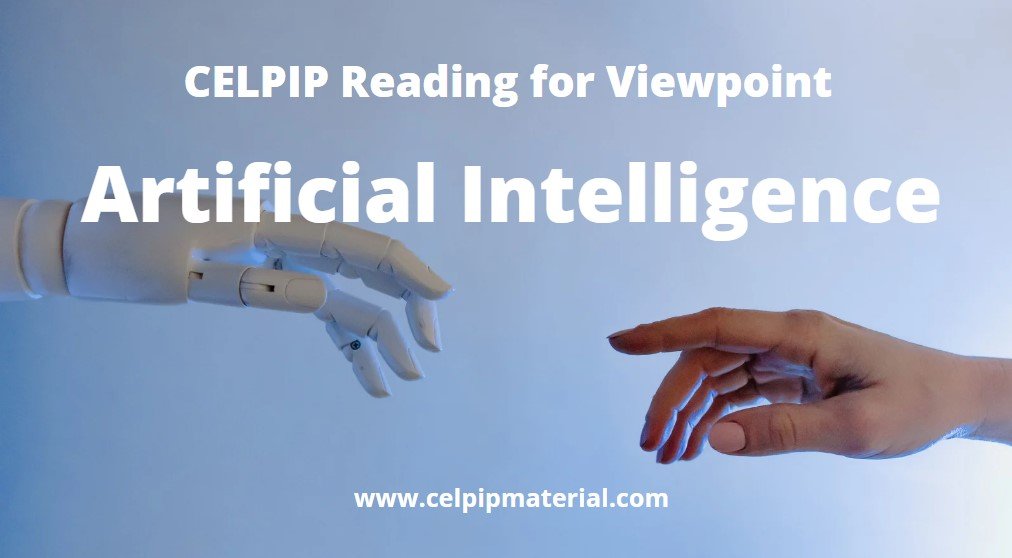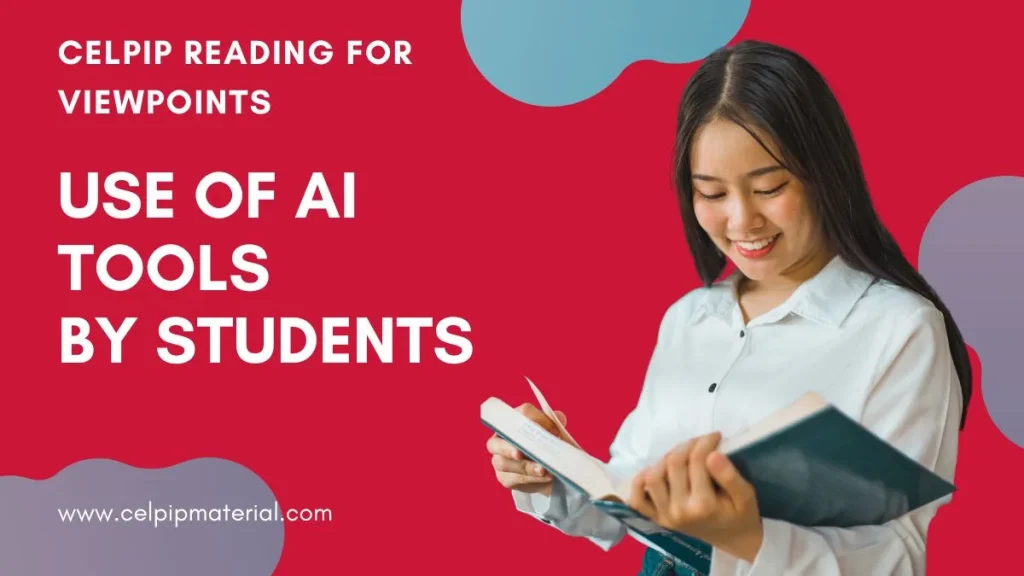
CELPIP Reading for Viewpoints Artificial Intelligence
CELPIP Reading for Viewpoints Artificial Intelligence
The debate over the ethics and efficacy of artificial intelligence (AI) in decision-making processes has become increasingly contentious. Dr. Elizabeth Warner, a computer scientist at MIT, mentions that AI can vastly improve efficiency and accuracy in various fields, from medical diagnostics to financial forecasting. According to her, AI systems are trained on extensive datasets, can identify patterns and make predictions with a level of precision
unattainable by humans. She emphasizes, “AI’s potential to revolutionize industries hinges on its ability to process and analyze data at unprecedented speeds, thus enabling more informed and timely decisions.”
“The risks of AI entrenching systemic inequalities far outweigh its benefits,” states Dr. Alan Greene, an ethicist at Stanford University, and argues about the deployment of AI in critical decision-making roles. He admits that AI systems, while seemingly impartial, can inadvertently perpetuate biases present in their training data, leading to unfair or discriminatory outcomes. Dr. Greene points to several instances where AI algorithms, used in hiring or law enforcement, have demonstrated biased behavior against certain demographic groups. “Without stringent
oversight and continual reassessment,” He underscores the need for a cautious and regulated approach to ensure ethical integrity in AI applications.
Reliance on AI can erode public trust in institutions, especially if decisions are perceived as opaque or unaccountable. Adding another dimension to the debate, Dr. Rachel Kim, a sociologist at the University of Chicago, explores the societal implications of AI integration. She cautions that the delegation of decision-making to machines could lead to a disempowered citizenry, stripped of agency and skeptical of the mechanisms governing their lives. Dr. Kim advocates for a balanced approach, where AI augments human decision-making rather than replacing it entirely, thereby maintaining transparency and accountability.
Dr. Samuel Lee, a data scientist at the National Institute of Technology, offers a robust defense of AI, emphasizing its potential to foster innovation and solve complex problems. Dr. Lee argues that AI can be designed to be self-improving, learning from its mistakes, and refining its algorithms to become more accurate and less biased. “With the right safeguards and continuous improvements, AI can be a powerful tool to address some of the most pressing challenges of our time,” Dr. Lee asserts. He believes AI should focus on collaboration between
humans and machines to leverage the strengths of both for optimal outcomes.
Choose the best option according to the information given on the website:
1. Dr. Warner’s view on AI’s ability to revolutionize industries primarily depends on the assumption that AI systems:
A. can replace human decision-makers entirely.
B. are less likely to make errors compared to human judgment.
C. are immune to biases present in human decision-making.
D. can process and analyze data faster and more accurately than humans.
2. Dr. Greene’s critique of AI systems is grounded in the concern that:
A. AI systems are too expensive to implement widely.
B. AI systems cannot handle large datasets effectively.
C. AI systems, though impartial, can reinforce existing societal biases.
D. AI systems will replace human jobs, leading to unemployment.
3. The potential societal risk highlighted by Dr. Kim regarding the use of AI is that it:
A. might lead to increased efficiency in public services.
B. could reduce transparency and diminish public trust in institutions.
C. will completely eliminate human errors in decision-making.
D. can enhance the democratic processes by being neutral.
4. According to Dr. Lee, one of the key benefits of AI is its ability to:
A. continuously improve by learning from its errors and reducing biases.
B. replace the need for human oversight entirely.
C. operate without any risk of making mistakes.
D. function effectively without extensive data inputs.
5. Despite their differing views, what common stance do all four experts share regarding AI?
A. AI should be banned from critical decision-making roles.
B. AI’s integration into decision-making processes is inevitable but must be managed carefully.
C. AI will eventually become completely unbiased and ethical.
D. Human oversight is unnecessary with advanced AI systems.
Also Check: CELPIP Reading for Viewpoints Music Industry
The following is a comment by a visitor to the website page. Complete the comment by choosing the best option to fill in each blank.
Working in a tech company, I find the discussion on AI’s role in decision-making fascinating yet concerning. While Dr. Warner’s point about AI’s ability to 6. _______ large datasets for accurate predictions is compelling, we cannot ignore Dr. Greene’s warning that AI systems can 7. _______ biases inherent in their training data. Furthermore, Dr. Kim’s perspective on the societal impact is crucial; relying too heavily on AI could 8. _______ public trust and 9. _______ people’s sense of agency. However, Dr. Lee’s argument that AI can learn from its
mistakes and continuously improve is encouraging. It seems essential that we develop a framework that 10. _______ these various concerns and ensures AI is used ethically and effectively.
Q6.
A. disregard the immense variety of inputs that are essential for producing
B. overlook the importance of small datasets
C. replicate human biases
D. process and analyze large datasets for generating
Q7.
A. mitigate the various systemic issues that could arise from
B. perpetuate and exacerbate the biases that exist within
C. eliminate the need for human intervention in
D. obscure the potential benefits of
Q8.
A. build stronger relationships between institutions and the public by enhancing
B. restore trust in systems that have long been considered opaque by improving
C. undermine public trust in institutions by decreasing
D. enhance the reliability of public institutions by increasing
Q9.
A. reinforce the public’s trust in technology and the decisions made by
B. diminish people’s sense of control over decisions that affect their lives by reducing
C. bolster the confidence of citizens in the mechanisms that govern
D. obscure the transparency needed for maintaining public trust
Q10.
A. balances the efficiency of AI with the need for human oversight by addressing
B. ignores the broader social implications by overlooking
C. amplifies the technical benefits although dismissing
D. contradicts the ethical considerations while undermining
CELPIP Reading for Viewpoints Artificial Intelligence Answers
1. D
2. C
3. B
4. A
5. B
6. D
7. B
8. C
9. B
10. A
Also Check: CELPIP Reading Diagram Brochure Style












Suthar
Celepip material